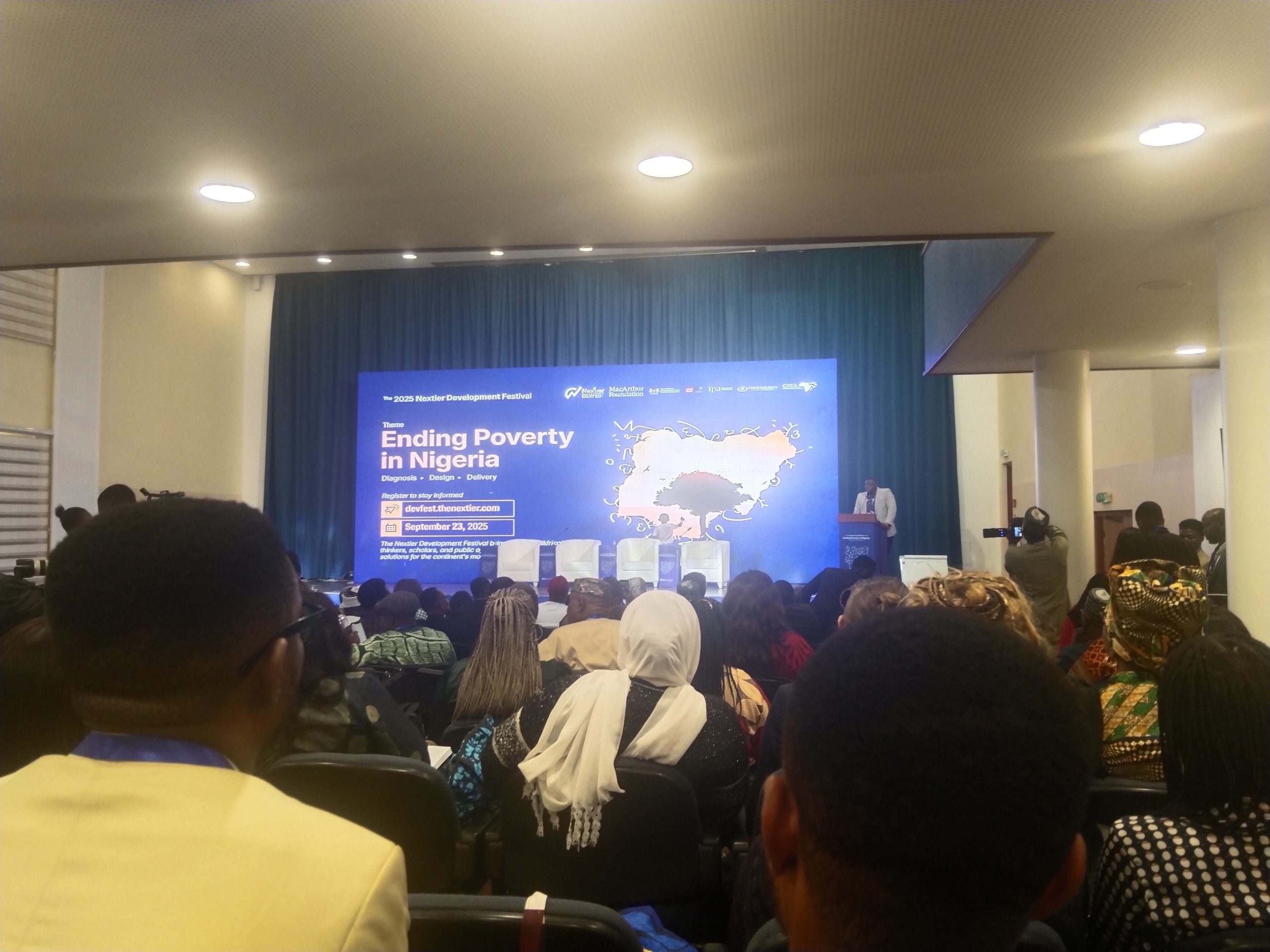Maureen Okpe
In a bid to tackle the pervasive issue of poverty in Nigeria, stakeholders from various sectors have converged at the Nextier Development Solutions Festival,to chart a new path for the Nigeria’s development.
The development festival with theme “Ending Poverty in Nigeria,” on Tuesday, in Abuja, brought together government officials, academics, and practitioners to deliberate on strategies to eradicate poverty.
Vice President Kashim Shettima,represented by the Special Adviser to the President on Power & Infrastructure, Mr. Sadiq Wanka at the festival, emphasized the need for a collective commitment to leaving no Nigerian behind.
Read Also: Over 20,000 killed in Nigeria from 5,291 violent incidents in last 4 years– Nextier Report
He highlighted the administration’s “Poverty Exit Plan,” anchored on three strategic pillars: investing in critical infrastructure, driving financial and economic inclusion, and encouraging value-addition and mechanized agriculture.
“We recognize that true prosperity is not measured by GDP alone, but by the dignity and well-being of every citizen,” Shettima said. “Our ‘Poverty Exit Plan’ is a multifaceted and relentless effort to dismantle the structures of poverty and replace them with a future of shared prosperity.”
The Vice President noted that the government has made significant progress in stabilizing the economy, with gross reserves standing at $42 billion and a significant increase in non-oil exports.
“We are committed to putting money directly into the hands of our most vulnerable citizens through our Conditional Cash Transfer programme,” he said. “We are also leveraging technology to ensure these transfers are transparent and reach the right people.”
Read Also: Insecurity: Over 5,000 casualties, 3,110 kidnappings between Jan 2023- March 2024 – Report
Head of Delegation of the European Union to Nigeria and ECOWAS, Ambassador Gautier Mignot, emphasized the importance of good domestic economic and social policies in reducing poverty.
He noted that international assistance can only guide the design and implementation of these policies, but ultimately, it is the responsibility of the Nigerian government to drive development.
“Poverty reduction is not only a moral or religious duty, but also a political, social, and economic imperative,” Mignot said. “We need to give a voice to poor people themselves and those who know them well, beyond simple statistics.”
Secretary to the Government of Enugu State, Professor Chidiebere Onyia
shared the state’s experience in addressing poverty through a multi-sectoral approach. He highlighted the importance of political courage and commitment to implementing policies that can help eradicate poverty.
Read Also: Power Outage: Nextier advocates policy reforms to scale up off-grid energy in Nigeria
“We have reduced poverty in Enugu State through aggressive interventions in education, agriculture, and health,” Onyia said. “We are not just talking about poverty reduction, but poverty eradication.”
Patrick Okigbo, Founding Partner of Nextier, emphasized the need for a collective effort to end poverty in Nigeria. He noted that the festival aimed to bring together thoughtful and committed people to think about the problem and come up with solutions.
“We refuse to accept that poverty is a problem that cannot be solved,” Okigbo said. “We need to sit down and think about how to end poverty in Nigeria, and we need to do it now.”
The stakeholders emphasized the importance of data-driven policy design and implementation, as well as the need for a bottom-up approach to addressing poverty. They also highlighted the importance of political will and commitment to driving development and eradicating poverty.

